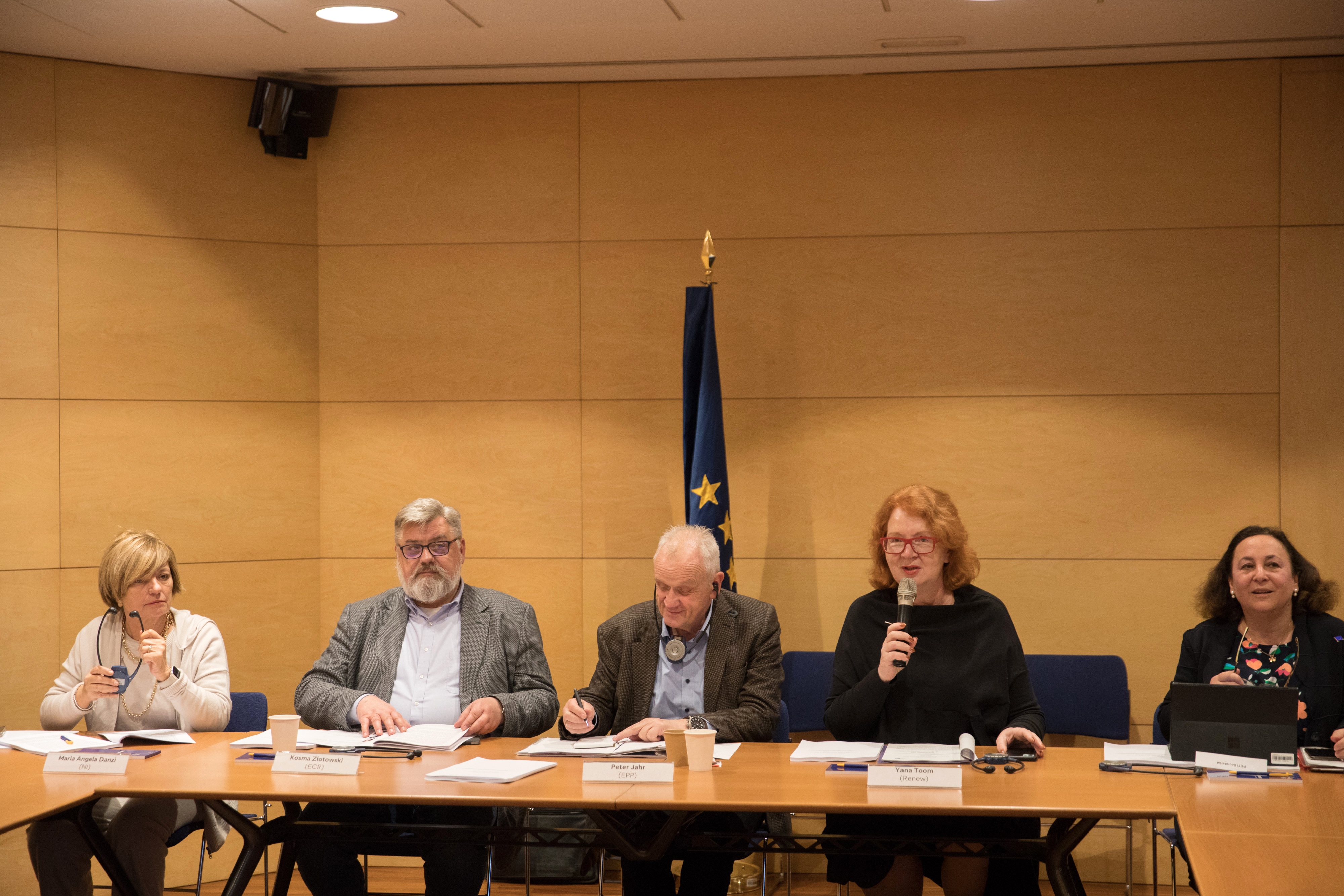The MEPs who are part of the European parliamentary mission looking at Catalonia's language immersion system in schools started the second day of meetings this Tuesday. And in an agenda dominated by meetings with groups and individuals opposed to the Catalan school model, the MEPs were due to meet this afternoon with one of the only two pro-immersion civil society organizations that was included in the visit: Fundació Bofill, a think tank that promotes research, debates and initiatives in the sphere of education. The body's head of projects, Elena Sintes, explained to this newspaper that the Fundació planned to present the results of research and evidence that "demonstrate that the Catalan school model achieves the goal of education in Catalan and Spanish for all students", to set out the positive aspects of immersion in terms of avoiding the linguistic segregation of students, and to point out that the challenges of the Catalan educational system "in no way have anything to do" with the vehicularity of the Catalan language.
Precisely with this objective in mind, the foundation presented a "synthetic but very rigorous" report on why Catalan is key to fighting educational inequalities, a report whose English version is included below. It explains that one of the goals of Catalan schools is linguistic: the aim, in line with the common framework of reference of the Council of Europe, is "for the entire population is to be able to communicate fully and fluently in Catalan and Spanish," as well as in Aranese in the Aran mountain county.
"To ensure the attainment of these language skills, since the 1980s Catalonia has adopted a unified model, a model of non-separation for reasons of language. That is, students are not separated in function of origin or family language, with all students together in the same classroom." This fact, precisely, aims to avoid the division of Catalan society into separate linguistic communities. "This is the fundamental pillar of coexistence and social cohesion."
The report sets out how the Catalan system acts to guarantee equal opportunity in acquiring language skills. It shows how, in particular, schools contribute to the reduction of educational inequality in function of place of origin, when learning official languages. Students' knowledge of Catalan, says the report, comes about due to its central role as the common language in the education system - and the results show that this is achieved without negatively affecting knowledge of Spanish. It quotes data that shows that language of origin of students leads to no significant statistical differences in school results. Furthermore, compared to other systems used in the Spanish state, the immersion system is the "comparatively most efficient model in bilingual education for students".
The education think tank admits that the Catalan education system "can be improved in many aspects - especially with regards to educational inequality and excessive [socioeconomic] segregation" - but emphasises that "no aspect of this is related to the language of study."

